A new and transformative experiential program for climate-aware educators
Katharine Wilkinson from All We Can Save has a big announcement!
Hi there!
Welcome to Gen Dread, a newsletter about how the climate crisis is making us feel, why that’s happening, and what we can do about it. Subscribe now to find community, comfort, and practical coping and acting strategies from experts all around the world.
If you a) work in higher education and 2) are deeply awake to the climate crisis, the conversation below is a tailor made response to some challenges you may be experiencing with your students and fellow teachers. Katharine Wilkinson works with the All We Can Save project, an American nonprofit organization on a mission to pull together as many humans as possible into a web of community-powered by deep concern for our planet and its people’s future. In 2020 they published a bestselling anthology of the same name, featuring stories of 60 women who’ve taken 60 vastly different approaches to their climate work.
All We Can Save offers several different tools and programs for helping individuals find their purpose and place within the movement. One of those programs is called Climate Wayfinding, which Katharine will tell you more about below. She’ll also describe the exciting new offering that All We Can Save just unveiled this week. Let’s get to it!
First, a little backstory to the big announcement from Katharine Wilkinson:
When you spend your days in climate, the question of “what can I do?” is so present. So, how do we answer that question? Not in a cheap checklist kind of way, because it's really an existential question, right? Like, really, what do we do at this kind of moment? When we think about the crossroads that we face in the climate crisis, there's not a lot of support structures in place for these moments.
So last year I sat down to design a new experience that came to be called Climate Wayfinding, to be one of those navigational containers. It’s an experience and a space and a kind of supported moment of community for holding the big questions that a lot of people are holding, and doing introspective work, outrospective exploration, and ultimately weaving it together towards hope. The aspiration is that at the end of this experience, people will feel clearer, they'll feel more courage, and they'll feel connected and in community with the next steps on their own climate journeys.
As we were thinking about how we might bring this program to scale, we started thinking a lot about higher education, partially because our “All We Can Save” anthology has had incredible uptake on university campuses. It's being taught on over 150 campuses in the U.S. alone and in a huge range of courses from science to creative writing. There's a huge audience of undergraduate and graduate students who are on the cusp of potentially beginning their professional lives in this work. So we asked: how can we better equip the emergent climate movement?
Some of them are already very much in the climate movement. But how do we equip people to keep working with the questions of what can I do? and how can I contribute? as things inevitably change, as impacts intensify, as solutions take greater hold, and as we evolve in our own expertise and experiences? Wayfinding is a set of mindsets and practices and navigational muscles that often we're not getting in our educational experiences. So we've now taken the climate wayfinding content, packaged it up into a toolbox, and we want to train faculty and staff in higher education to be facilitators so they can deliver it in a classroom in co-curricular ways – or basically however it might best come to life on campus and in communities and to meet the needs of their students.
…and now for the big announcement!
Applications are now open for those trainings, which will be held in May and June of next year. Our plan is to run three of them: one in the Southeast US, one in the Northeast, and one in Canada. So we may have something like 75 faculty and staff then activating this on their campuses in the next academic year after the trainings. And so you can imagine that's year one, and then year two you train more people, year three you train more people. And all of a sudden the math grows such that this could be reaching tens of thousands of students in the next few years.
Some advice for the newly awake.
GD: You talk about how we need to disengage from urgent energy. But in the climate justice movement, where we do have a very small window in which to make radical changes, it seems like there’s urgency inherently baked into the problem. How do we reconcile these two things?
KW: The very first step that I would suggest is don't go it alone. Don't hold that question alone. Even if it just means you've got one other person in your climate squad, having some amount of community is really important. So that’s where joining a group can be really amazing. You could scream into the void alone, or you could be part of a whole ecosystem of efforts.
A lot of times people ask the question “what can I do?” but in this consumer society that we live in, we’ve been trained to answer that question from a very individual level perspective. And of course, we're always individuals acting, but there are a variety of realms in which we can act. So I suggest that people think about three interconnected spheres of action: the personal, the professional, and the political.
The personal would be those things we can do at home, in our communities: is it time to replace your furnace? How about a heat pump? Can you get your 401k (American for retirement fund) out of fossil fuels? The professional is: how can we take our skills, our superpowers and connect those into climate contribution in some way? And then the political: particularly for those of us living in democracies, how do we engage with the political system to move climate action forward in that sphere? And I think if we've got something cooking in each of those buckets at any given time, we're doing pretty well. We're never going to be able to do it all. We're never going to feel like we're doing enough, because that's the nature of a problem this big.
We need all those people on the sidelines, too.
GD:How do you interact with family members or friends who are not just energized enough to get involved? Good, smart people who are not denying the climate crisis, but they’re also not actively working to stop it?
KW: It’s really hard, is just the first thing to say. But on a range of issues, right? People who are deeply awake to the crisis of elder care or people who are deeply awake to police violence – it can be really frustrating to interact with people who are sort of like, “yeah, I get that that's a problem, but whatever, moving right along!” It’s something people in climate certainly experience intensely, but I think we're not alone in that.
I think the best thing that you can do is to create as many warm and welcoming invitations in as possible. That’s what's so cool about the “All We Can Save” anthology: you have perspectives from 60 different women, and all of these different doorways into what climate engagement can look like. Like if the concerned party is a hardcore direct-action activist, they may have people in their life that are like “well, I can't see myself engaging that way. But I absolutely can see myself tapping into my art as a means of climate communication… or I can see being a behind-the-scenes administrative whiz to make sure a campaign or a march comes together”.
Historically, the climate movement has not been the best at creating that warm welcome, and people feel like they don't know enough. And I think there's a lot of shame for folks who live in higher income parts of the world. Because we're all implicated, even though we're putting the onus on fossil fuels. All of that is just hard. Which maybe brings us all the way back to the purpose of Climate Wayfinding and creating spaces for individual and collective navigation in a world where maps are failing us. They're failing us literally in the sense of coastlines slipping under the sea and forests that are gone and whole towns disappearing. But also our internal maps are failing us too, right? And none of us really knows how to be human on this hot and heaving planet. This is new terrain for everyone. And anyone who doesn't feel like they've lost their bearings maybe hasn't quite come to fully face that.
So how do we gather with one another with kindness and deep commitment to find our way together? Because those folks who are on the sidelines, awake and concerned, but haven't quite stepped in – we need them. We need everyone. We need more helpers. We don't have enough hands. The climate crisis is in many ways a leadership crisis. I mean leadership not just in terms of a formal top-of-the-hierarchy leadership, but leadership in the sense of anyone who is willing to roll up their sleeves and move things forward.
If you liked reading this, feel free to click the ❤️ button on this post so more people can discover it on Substack 🙏🏼
Making Waves
This Climate Week in New York, please join us for the Mental Health & The Climate Circle at Lighthouse BK on Thursday, September, 21st, 3 - 5 PM ET for a conversation with three fierce and passionate climate authors! Tori Tsui (author of It’s Not Just You), Britt Wray (author of Generation Dread) and Anne Therese Gennari (author of The Climate Optimist Handbook) will share the latest research on eco-emotions, tools for healing and how to grow emotional resilience for the days to come, moderated by the wonderful Isaias Hernandez (QueerBrownVegan). Stay after for some delicious happy hour snacks or a glass of bio-dynamic wine while you mingle! The talented Abigail Fenton will be there to take photos of you & your friends - we’ll share the photos afterward for you to post if you wish.
PS – Each author will be gifting away a copy of their book! All you have to do is register, show up and you’re automatically in the raffle!
Medicine for a Changing Planet is a collection of clinical case studies centered around climate, planetary health, and One Health to support health professionals in providing effective care for patients on a changing planet. This collaboration between the Stanford Center for Innovation in Global Health, and the Center for One Health Research at the University of Washington, helps health professionals recognize and treat a variety of health challenges impacted by environmental stressors. As an educational resource designed for healthcare providers, the cases in this project can be freely navigated both individually on their website or downloaded as slide sets for interactive teaching. Gen Dread readers might be particularly interested in checking out their eco-anxiety case study.
Last year over 100,000 people and 60+ speakers joined Collective Trauma Summit to increase awareness of collective trauma. This year, at the FREE Collective Trauma Summit 2023: Creating a Global Healing Movement, the summit brings both returning and new speakers, along with topics like climate activism, spirituality, fieldwork in conflict zones, trauma-informed leadership, journalism, and more. Join our own Britt Wray along with other speakers; Dr. Gabor Maté, Bob Delaney, Dr. Diane Poole Heller and Michael B. Beckwith. Their talks will be available to watch for free for 48 hours, from Thursday, September 28, 12:01 AM until Friday, September 29, 11:59 PM New York Time.
As always, you can share your thoughts and reach the Gen Dread community by commenting on this article or replying to this email. You can also follow along on Twitter and Instagram.
‘Till next time!





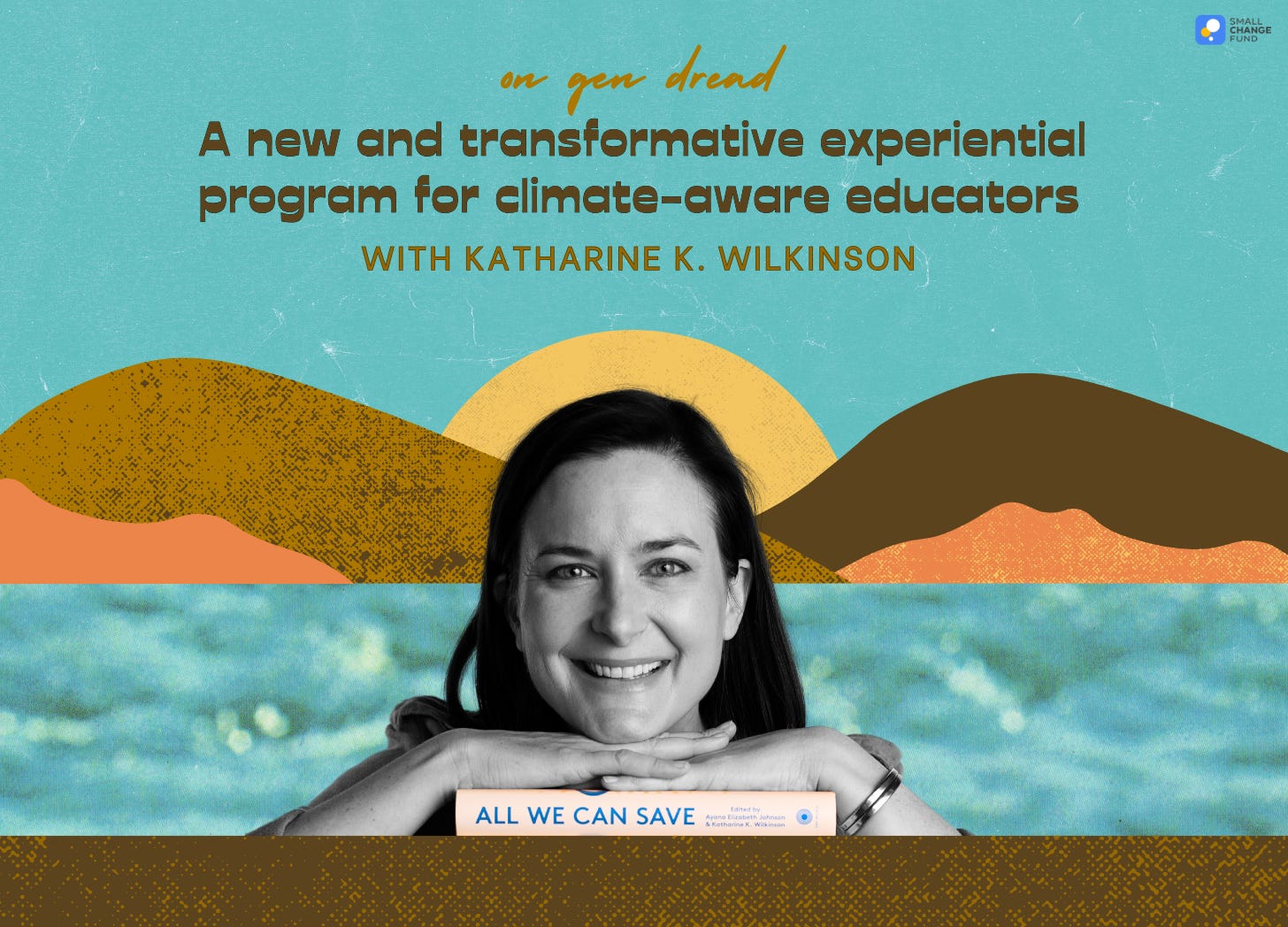
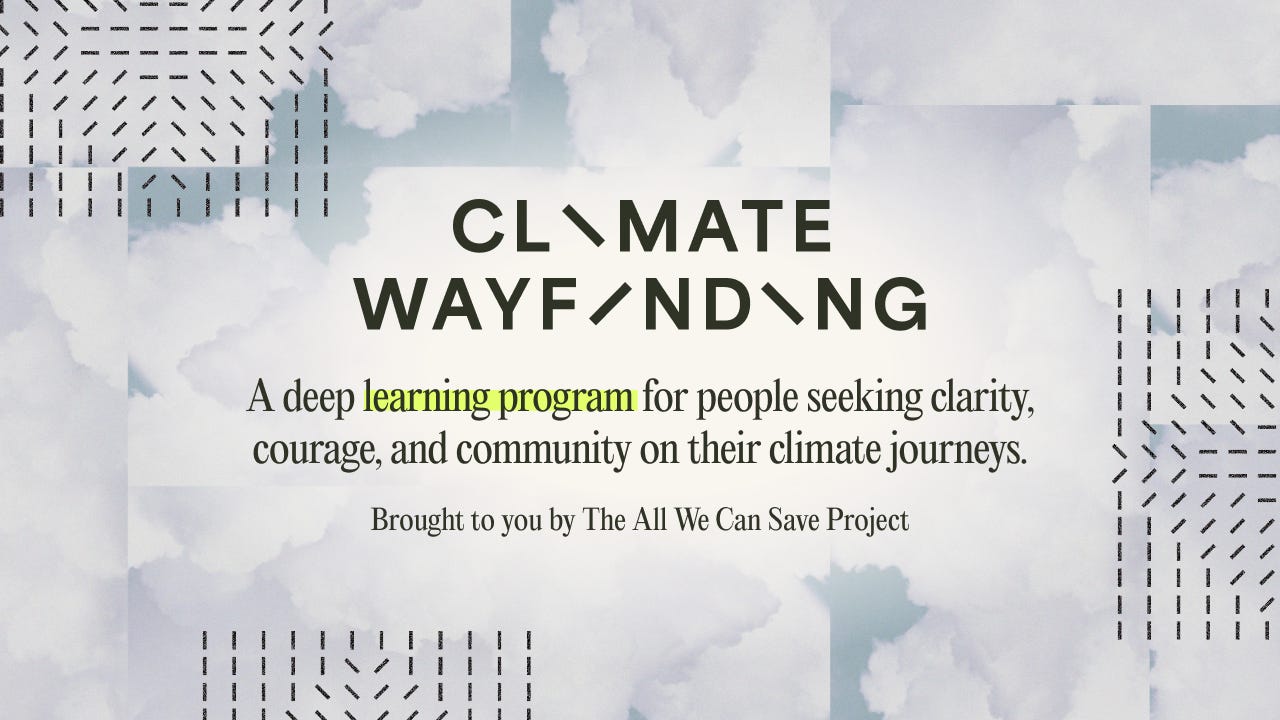
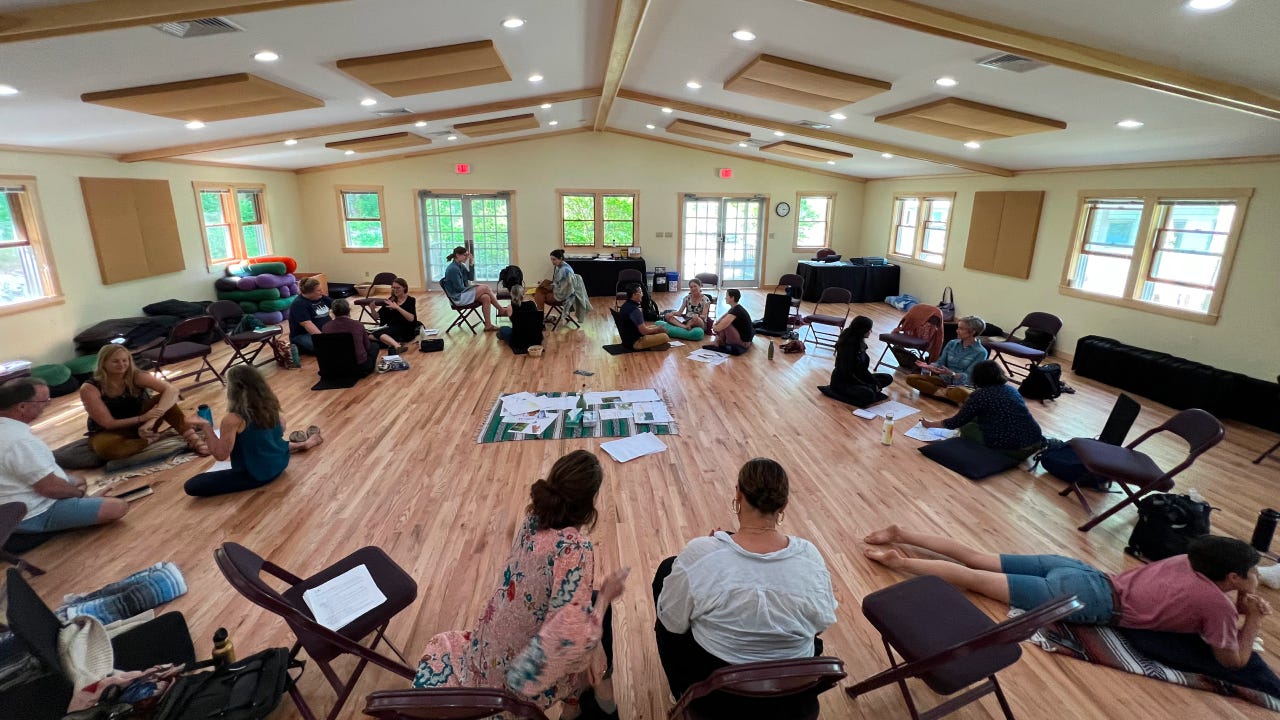
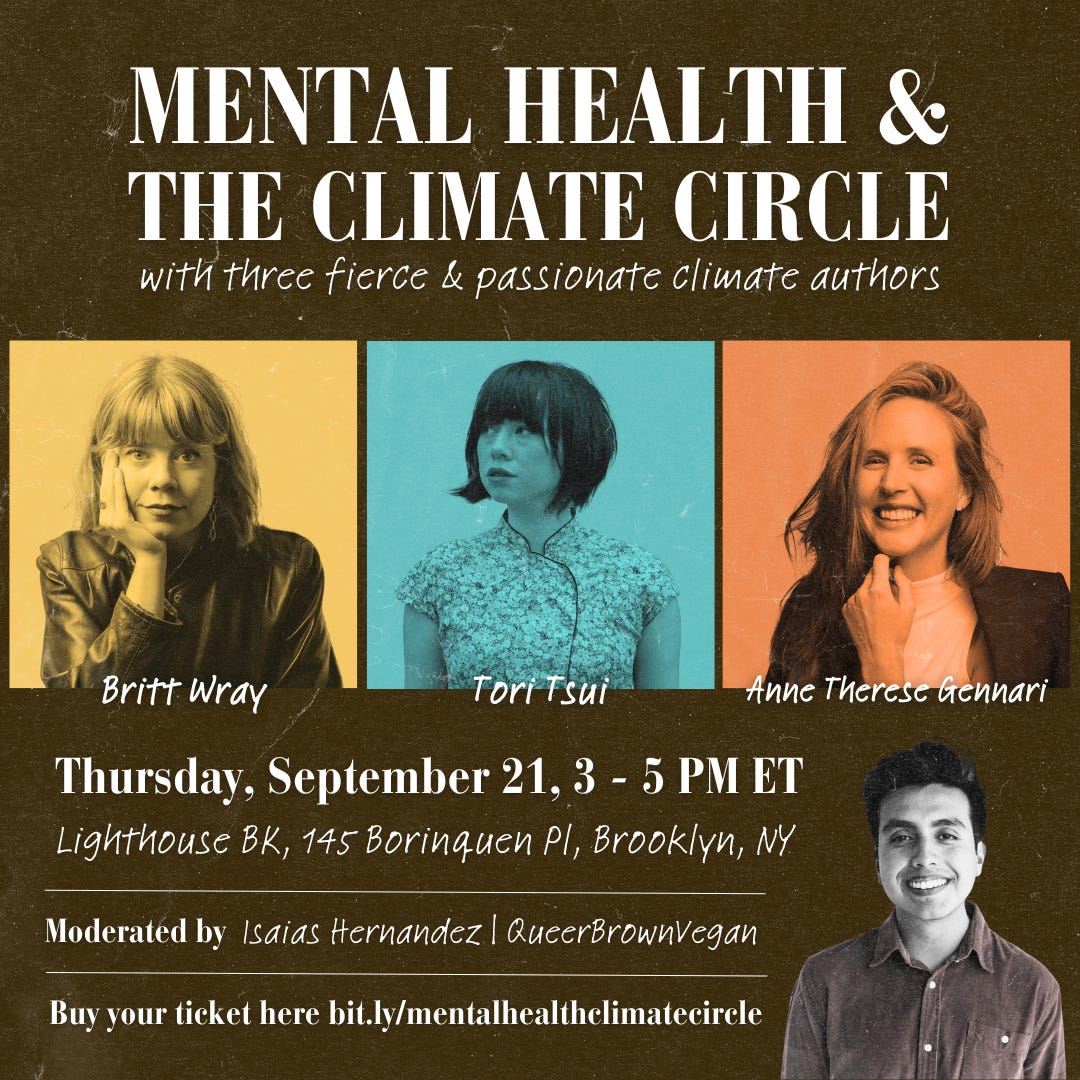
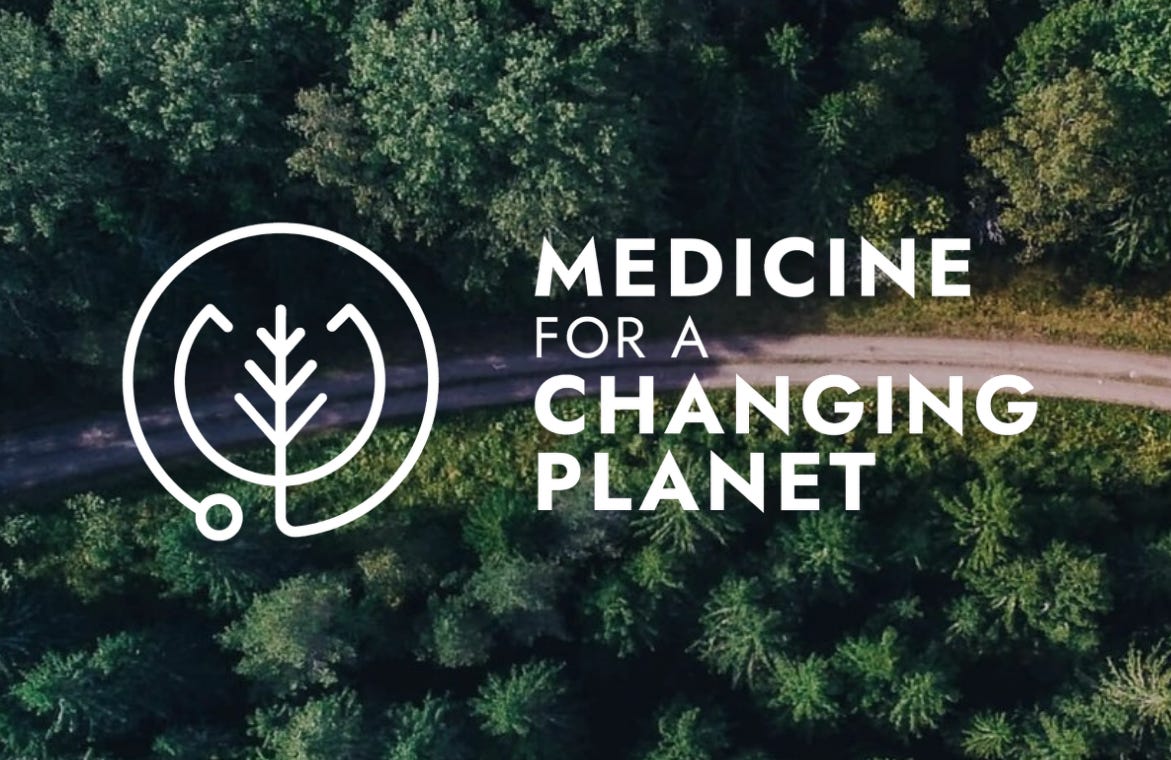
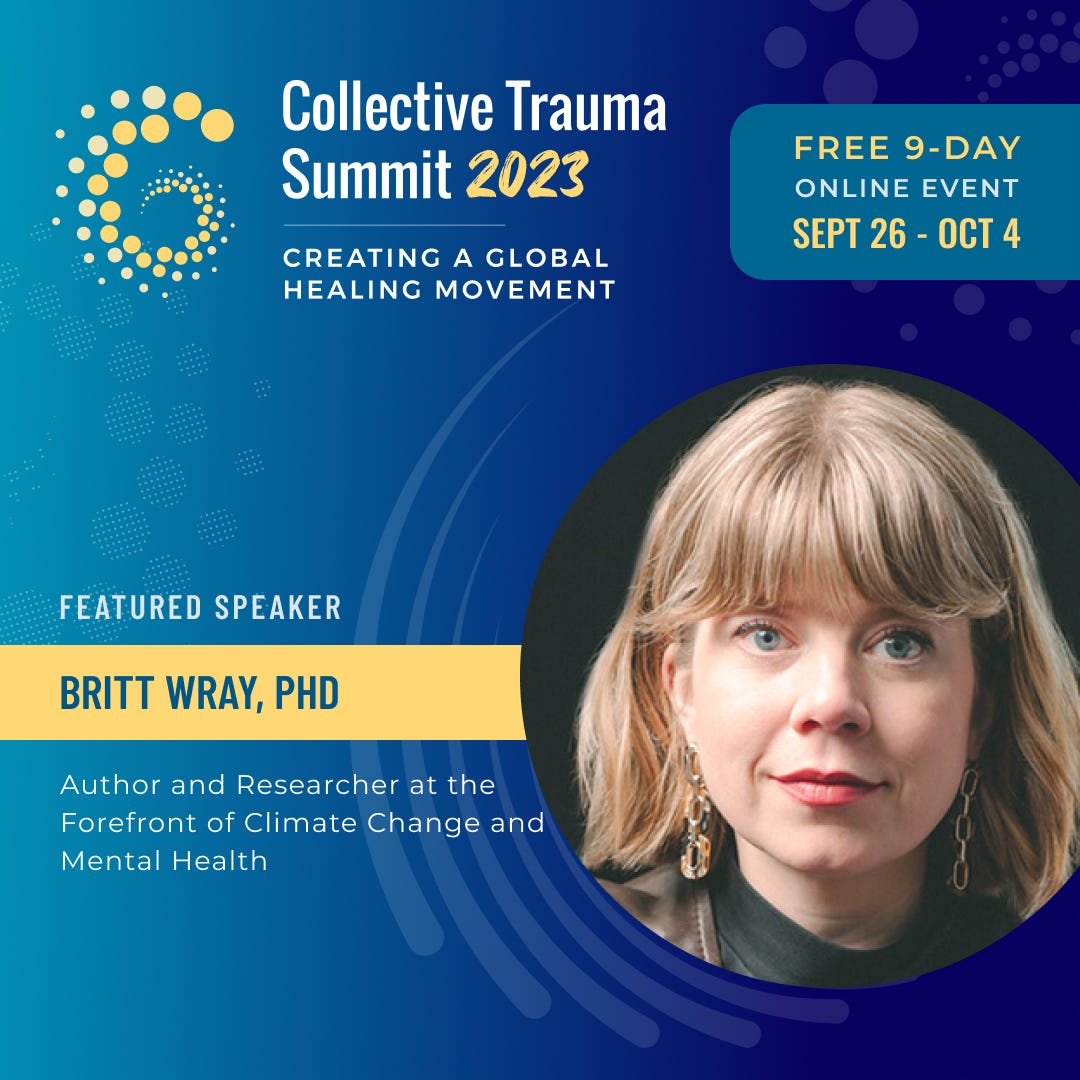
So exciting to hear more about Climate Wayfinding - congrats, Katharine, and thanks for breaking the story, Britt!!
Emerging from the "summer of reckoning " where we've witnessed a panoply of climate events, I'm feeling strangely optimistic because there are so many good, kind snd smart people stepping up. Thanks for keeping us keeping on.